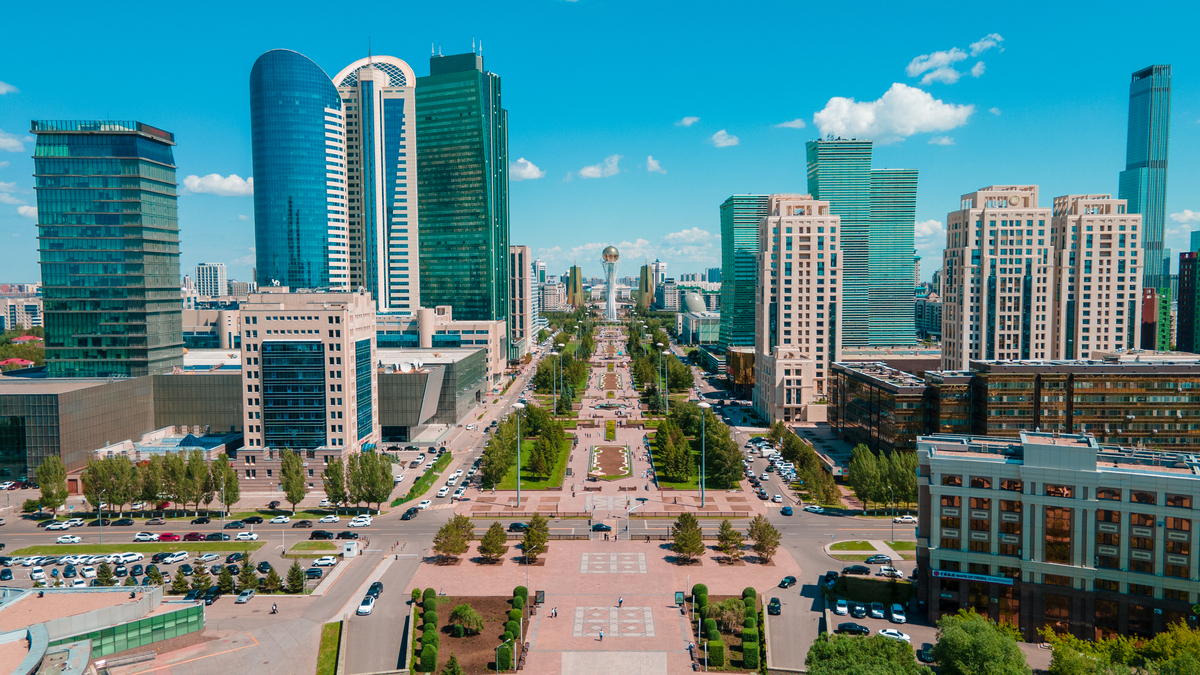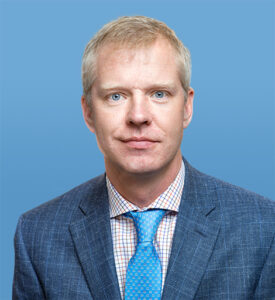ASTANA – The Central Asia-Caucasus Institute (CACI) hosted a webinar on Aug. 29, exploring the rise of middle powers in Central Asia, including Kazakhstan through its economic strength and strategic foreign policy. The discussion delved into the evolving security landscape of Central Asia, and Kazakhstan’s multilateral initiatives and international engagements.

View on the center of Kazakhstan’s capital Astana. Photo credit: The Astana Times
Regional players not to be neglected
“In spite of the acceleration of great power competition, the Central Asian states and the greater Central Asian states, including the Caucasus and Mongolia, have doubled down on their independent approach to the world. They have shown that they are not pawns in some kind of great game or chessboard and that they are developing an ability to impact the region surrounding them,” said Svante E. Cornell, a co-founder and director of the Stockholm-based Institute for Security and Development Policy, which CACI affiliates with.

Svante E. Cornell is a co-founder and Director of the Institute for Security and Development Policy. He is the Director of the Central Asia-Caucasus Institute & Silk Road Studies Program. Photo credit:afpc.org
Cornell recently published a paper where he explores the middle power identity of Kazakhstan, and implications for the region and its foreign partners.
“The emergence of middle powers in Central Asia is something that should be absolutely central to the way foreign partners of Central Asia approach the region. But the problem is that it requires a fundamental rethink in some quarters where there is still this idea of the Central Asian region as a kind of great game,” said Cornell.
Such an idea, which he believes is inaccurate and misleading, is where the main political dynamics are only between the surrounding great powers, not involving the powers within the region itself.
“You saw this, for example, in the last few years of the U.S. presence in Afghanistan, where the U.S. government, at some point, tried to assemble a kind of a coalition to discuss Afghanistan. It included India, Pakistan, Russia, and China, but not the Central Asian states that are the immediate neighbors of Afghanistan. This is a typical example,” said Cornell.
Cornel argues that with the increasingly strong agency of Central Asian states, they can no longer be ignored. These countries are gaining enough strength to assert their priorities, and most importantly, they are enhancing cooperation with one another.
Who are the middle powers?
Cornell noted that population size, economy size, and military spending matter, but there is more to consider about a country’s influence beyond these measurable aspects.
“To be a regional power, you have to show signs of leadership somehow, particularly in areas of the specific expertise of a country. (…) Middle powers have also been recognized to work by stabilizing relations between great powers, being a mediating force, for example. Particularly, because they occupy this niche between the great powers and the rest of the international community, they are so-called good multilateral citizens,” Cornell explained.
Miras Zhiyenbayev, senior fellow and head of the Foreign Policy and International Studies Program at MIND Institute of the Maqsut Narikbayev University, said middle powers strive for equitable representation of their interests, which often align with those of the broader international community.
Change in the perception of power dynamics
He underlined the shift in the understanding of power levels, moving from a hierarchical understanding to a more horizontal one. Middle powers are positioned between great powers and other states, playing a crucial role in shaping the global governance landscape.
“The shift in understanding is poised to guide global politics in the coming decade and explains why middle powers are becoming more assertive in advocating for reforms while growing increasingly skeptical of the existing world order,” he said. “In the case of Kazakhstan, this shift in understanding is a primary factor in its evolving identity as a middle power.”.
Lack of functioning collective security mechanism
This middle ground naturally pushes them towards working through multilateral agreements to carve out their role alongside the great powers. Unlike smaller states, middle powers can assert themselves on the international stage through organizations such as the United Nations.
According to Cornell, this is particularly imperative because the region has no functioning collective security mechanism.
“Russia tried to set up one through the Collective Security Treaty, but, first of all, it is not working. Second, three out of five countries in Central Asia are members of this organization. The lack of any other functioning security mechanism in the region is all the more concerning,” he said.
Kazakhstan as a middle power
When it comes to Kazakhstan, Cornell said the country began to be identified as a middle power in Central Asia around a decade ago.
“Kazakhstan’s economic size is obviously the key starting point with a GDP of $250 billion which is larger than the rest of Central Asia combined. Equally important is the fact that in the realm of foreign policy strategy, Kazakhstan has set the tone for the rest of the region with a proactive approach to handling the competition among great powers. (…) The premise of Kazakh foreign policy is how you avoid being subjugated to the great powers or becoming an apple of contention among them and how you do so without engaging in constant hedging,” he said.
An answer to that is a positive balance between the country’s foreign relations. “In other words, to balance the obvious legacy of relations with Russia, not by reducing these relations, but by strengthening relations with other powers, primarily China and then the United States and then other powers,” said Cornell.
Kazakhstan has consistently followed two parallel strategies from the beginning—promoting Eurasian and Central Asian cooperation without prioritizing one over the other.
“We see, particularly after the transition of power in Uzbekistan in 2016 and the arrival of a new president, President Mirziyoyev, a focus on Central Asian regionalism. We see how Kazakhstan and Uzbekistan immediately teamed up to restart the process and, this time, managed to get every other Central Asian country, including Turkmenistan, on board with this,” said Cornell.
Kazakhstan has also long been working to build cooperation with Azerbaijan across the Caspian Sea, a process that has gained momentum in the past two years. The nation also extended its efforts beyond the region through various international initiatives to establish a presence on the global stage, including in an area of specific expertise, which for Kazakhstan is nuclear non-proliferation advocacy.
“Kazakhstan’s adoption of a middle power identity is not merely cosmetic, as some critics suggest. These critics often view the middle powers concept through a power-based lens and call for a more decisive action to sustain this status, a vision that actually could jeopardize the delicate security balance in the region,” said Zhiyenbayev.
He believes Kazakhstan has long been playing the role of a middle power, even if it hasn’t always been acknowledged as such. The modern interpretation of middle power status aligns seamlessly with Kazakhstan’s strategic goals and the careful diplomacy required in its complex geopolitical surroundings.
Obligations of middle powers
When asked if greater agency also means taking on certain responsibilities in fostering regional development, Zhiyenbayev responded decisively.

Miras Zhiyenbayev. Photo credit: Zhiyenbayev’s archive
In the case of Kazakhstan, the nation has the infrastructure in place to support regional growth.
“I am talking about having KazAID, which is actually focusing its work directly on Central Asian states like Tajikistan, Kyrgyzstan and Turkmenistan, providing some help to Uzbekistan. Kazakhstan is actually one of the biggest donors to the Afghan people. We are working very hard in that matter,” said Zhiyenbayev.
Zhiyenbayev stressed having agency in the region means creating opportunities and giving enough space for other countries in Central Asia to grow and develop amid sometimes challenging geopolitical landscape.
